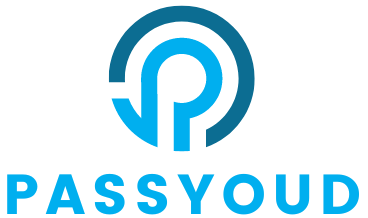Are you tired of walking a tightrope, constantly fearing that your website’s rankings could plummet at any moment? In the ever-changing landscape of SEO, the battle between PBNs and ethical link building practices has become a symbol of the struggle to achieve long-term success. PBNs, or Private Blog Networks, may offer a quick fix, but they come with risks that could bring your website crashing down. On the other hand, ethical link building practices provide a solid foundation for sustainable growth and improved search engine visibility. In this guide, we will compare the two approaches and explore the benefits of ethical link building strategies. It’s time to choose the right path for your website’s future.
Key Takeaways
- Private Blog Networks (PBNs) are a black hat SEO technique that violates search engine guidelines.
- Ethical link building practices provide long-lasting results, credibility, and trust with users.
- Strategies for ethical link building include outreach campaigns, guest blogging, and prioritizing quality over quantity.
- Choosing the right approach is important, considering relevance, high-quality backlinks, a diverse link profile, and long-term sustainability.

What Are PBNs
If you’re wondering what PBNs are, they are privately owned networks of websites that are used for the sole purpose of manipulating search engine rankings. PBNs have gained popularity in the world of SEO due to their potential to boost a website’s visibility and organic traffic. However, it is important to understand the disadvantages of PBNs before considering their use.
One major disadvantage of PBNs is the risk of being penalized by search engines. Since PBNs are designed to manipulate search engine rankings, they are considered a black hat SEO technique. Search engines like Google have sophisticated algorithms that can detect unnatural linking patterns associated with PBNs. If caught, your website could face severe penalties, such as being removed from search engine results entirely.
Another disadvantage of PBNs is the time and effort required to maintain them. Building and managing a network of high-quality websites can be a daunting task. It involves acquiring multiple domain names, hosting, content creation, and regular maintenance. This can be time-consuming and expensive, especially if you want to maintain the quality and relevance of each website in your PBN.
Risks Associated With PBNs
You should be aware of the risks associated with PBNs. While PBNs may seem like a quick and easy way to boost your website’s rankings, they come with significant disadvantages and risks. One major risk is the potential for penalties from search engines. PBNs violate the guidelines set by search engines like Google, which means that if you’re caught using them, your website could be penalized or even removed from search engine results pages. This can have a devastating impact on your online visibility and organic traffic.
Another risk is the lack of control over the quality of the websites within your PBN. Since PBNs are made up of expired or auctioned domains, you have no control over the content or the history of these websites. This means that the websites linking to yours may contain poor-quality content, spammy links, or even be associated with black-hat SEO practices. Such associations can harm your website’s credibility and reputation.
Furthermore, PBNs require a significant investment of time, effort, and resources to set up and maintain. You need to continuously update and manage multiple websites, ensuring they remain active and relevant. This can be a time-consuming and costly process.
Benefits of Ethical Link Building Practices
Now let’s explore the advantages you can gain from implementing ethical link building practices instead. Ethical link building practices offer numerous benefits and are known for their effectiveness in improving search engine rankings and driving organic traffic to your website. Here are some advantages you can expect when you choose ethical link building practices:
- Long-Lasting Results: Unlike PBNs, which can be penalized by search engines, ethical link building practices provide sustainable results that can withstand algorithm updates and changes in search engine guidelines.
- Higher Domain Authority: By building links from reputable and authoritative websites, you can increase your own website’s domain authority, which is a crucial factor in search engine rankings.
- Enhanced Credibility and Trust: Ethical link building helps establish your website as a reliable and trustworthy source of information, leading to increased credibility among users and potential customers.
- Increased Organic Traffic: When your website receives high-quality backlinks from relevant sources, it signals to search engines that your content is valuable and deserving of higher rankings, resulting in increased organic traffic to your site.
Implementing ethical link building practices not only avoids the risks associated with PBNs but also provides long-term benefits for your website’s visibility and success in search engine rankings. By focusing on quality, relevance, and credibility, you can harness the power of ethical link building to drive targeted organic traffic and achieve sustainable growth.
Strategies for Ethical Link Building
To effectively implement ethical link building practices, it is essential to start with a well-defined strategy. One effective strategy is to focus on outreach campaigns. This involves reaching out to relevant websites and bloggers in your industry to request a link back to your site. By building relationships and providing valuable content, you can increase your chances of obtaining high-quality backlinks. Another strategy is to explore guest blogging opportunities. This involves writing and publishing guest posts on reputable websites in your niche. By offering valuable and informative content, you can earn a link back to your site in the author bio or within the content itself. Guest blogging not only helps to build backlinks but also allows you to establish yourself as an authority in your field. Remember to always prioritize quality over quantity when pursuing ethical link building strategies. Focus on building genuine relationships, providing valuable content, and targeting relevant websites to ensure the long-term success of your link building efforts.
How to Choose the Right Approach for Your Website
When deciding on the best approach for your website, it is important to consider the specific needs and goals of your business. Choosing effective link building approaches can greatly impact your website’s performance. To make an informed decision, here are some factors to consider:
- Relevance: Ensure that the websites you choose to build links from are relevant to your industry or niche. This helps establish credibility and authority.
- Quality: Focus on obtaining high-quality backlinks from reputable websites. These links carry more weight and can positively impact your website’s search engine rankings.
- Diversity: Aim for a diverse link profile by acquiring links from various sources such as guest blogging, social media, and industry directories. This helps mitigate the risk of relying on a single strategy.
- Long-term sustainability: Consider link building approaches that can provide long-term benefits. Building relationships with influencers or creating valuable content that naturally attracts links are examples of sustainable strategies.
Conclusion
In conclusion, while PBNs may offer some short-term benefits, the risks associated with them far outweigh the potential gains. Ethical link building practices, on the other hand, provide more sustainable and long-term results for your website. By implementing strategies such as creating high-quality content, building relationships with influencers, and earning natural backlinks, you can improve your website’s visibility and authority in a legitimate and effective way. Choose the ethical approach for your website to ensure long-term success.
